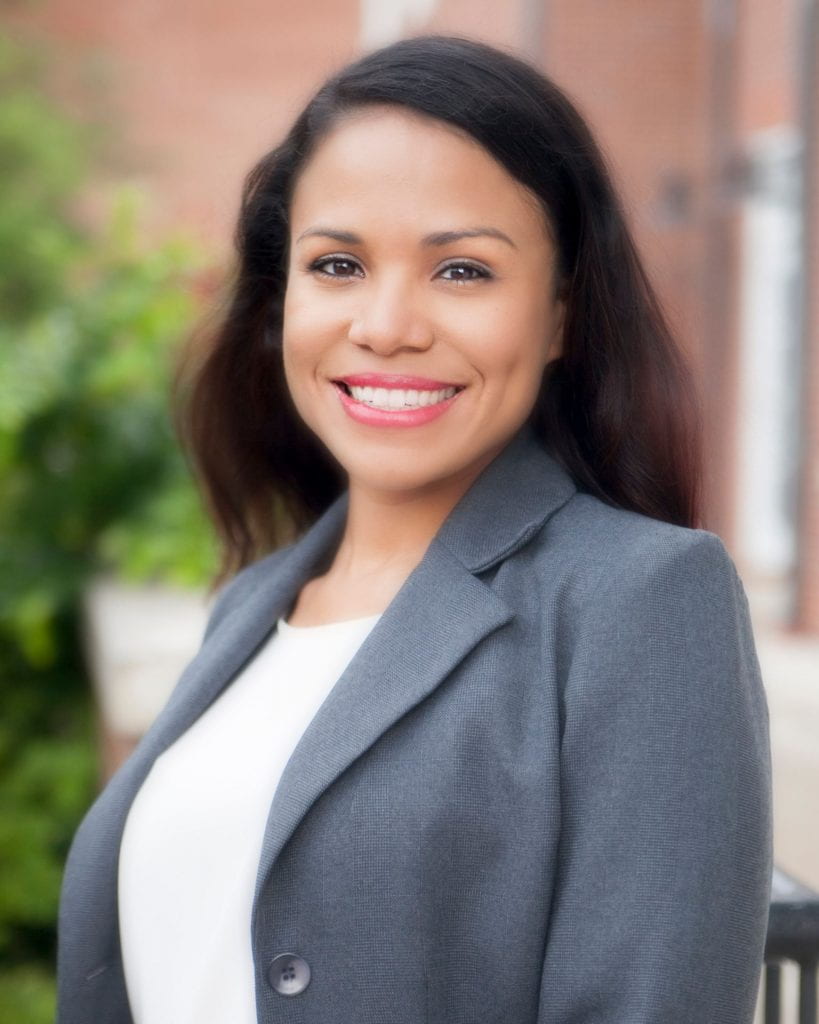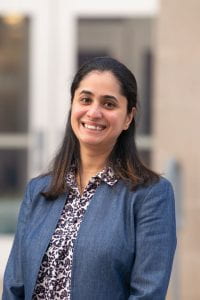The Global STEWARDS core faculty—all leaders in their respective food, energy, and water fields—bring expertise from five UMD colleges/schools across the biological, physical, agricultural, social, engineering, and computer sciences. These faculty have strong and consistent research and mentoring records, and have demonstrated commitment to the integration of stakeholder-driven research, outreach and education. As such, they are uniquely positioned to lead a successful training program to further actionable science that can affect global change with regard to the food-energy-water (FEW) nexus.
Principal Director:

Amy R. Sapkota (Professor, School of Public Health, Global, Environmental & Occupational Health): Dr. Sapkota is an environmental microbiologist with over 15 years of experience developing, refining and applying culture- and molecular-based methods for the detection and quantification of bacterial pathogens in environmental media, including water, air, food and soil. Dr. Sapkota is also the Project Director for CONSERVE: A Center of Excellence at the Nexus of Sustainable Water Reuse, Food and Health.
Co-Directors:

Allen Davis (Professor, A. James Clark School of Engineering, Maryland Water Resources Research Center (Former Director). Dr. Davis’ interests are in aquatic and interfacial environmental chemistry. Recently, he has been working on various issues related to urban storm water quality and the concept of Low Impact Development. Much work on bioretention as an urban storm water best management practice has been completed and is in progress.

Nathan Hultman (Associate Professor, Center for Global Sustainability, Global Change Research Institute, Energy Research Center): Dr. Hultman is Director of the Center for Global Sustainability and Associate Professor at the University of Maryland School of Public Policy. He is also associate director of the Joint Global Change Research Institute, a collaboration between the University of Maryland and the Pacific Northwest National Laboratory. His research interests include international climate policy, national climate target setting and assessment, low-carbon energy technologies, United States energy & climate policy; and comparative energy policy.

Stephanie Lansing (Associate Professor, Department of Environmental Science and Technology): Dr. Lansing integrates research, teaching, extension, and mentoring in order to provide efficient and ecologically sound methods for waste treatment and bioenergy using ecological engineering. Her research on bioenergy has value-added benefits to agricultural communities, the sanitation sector, and developing countries, while directly addressing greenhouse gas emissions, organic pollutants, pathogens, and nutrient runoff reductions.

Xin-Zhong Liang (Professor, Atmospheric and Oceanic Science, Earth System Science Interdisciplinary Center). Dr. Liang’s research interests include determining climate effects on agricultural productivity and regional climate-weather research and forecasting models. His most recent work has been centered around developing The Dashboard for Agricultural Water Use and Nutrient Management (DAWN), a predictive decision support tool to sustain food and energy crop production in the U.S. Corn Belt.

Jianghong Meng (Professor, Nutrition and Food Science, Joint Institute for Food Safety and Applied Nutrition (Director), Center for Food Safety and Security Systems (Acting Director)). Dr. Meng’s research focuses on food safety microbiology. His group studies the molecular identification, antimicrobial resistance, and pathogenicity of major foodborne pathogens, including Shiga toxin-producing Echerichia coli, Campylobacter, Salmonella, and Listeria monocytogenes.

Shirley Micallef (Associate Professor, Plant Science and Landscape Architecture, Center for Food Safety and Security Systems): Dr. Micallef specializes in the microbiological safety of fresh produce. Her main research areas include assessing the impact of various cropping practices on the persistence of foodborne enteric pathogens in the agricultural environment, and environmental metabolomics of plant surfaces to understand enteric pathogen colonization of plants.

Mihai Pop (Professor, University of Maryland Institute for Advanced Computer Studies, Center for Bioinformatics and Computational Biology): Dr. Pop is a computer scientist with over 15 years of experience in bioinformatics, specifically in the analysis of large genomic and metagenomic datasets. He is also the director of the University of Maryland Institute for Advanced Computer Studies and co-director of the UMD Center for Excellence in Microbiome Sciences.

Amir Sapkota (Professor, School of Public Health, Maryland Institute for Applied Environmental Health): Dr. Sapkota leads the exposure assessment laboratory at the University of Maryland School of Public Health. He has worked extensively to characterize environmental pollutants that are of concern to human health using state of the art laboratory methods including liquid chromatography tandem mass spectrometry (LC-MS/MS) based approaches.
Evaluator:

Gili Marbach-Ad (Research Professor, College of Computer, Mathematical, and Natural Sciences Teaching and Learning Center (Director)). Dr. Marbach-Ad’s research interests include promoting faculty member adoption of evidence-based teaching approaches in science courses and developing novel assessment tools to assess progress towards meeting national teaching and learning initiatives among faculty members, graduate teaching assistants, and students.
Course Instructor:

Rianna Murray (Assistant Research Professor, School of Public Health, Global, Environmental & Occupational Health). Dr. Murray’s research focuses on the influence of private drinking water wells and their proximity to animal agricultural operations on the incidence of foodborne illness in Maryland. Her other areas of research include global health, environmental justice, food safety and water quality. She was the initial Global STEWARDS Program Manager from 2019-2022, where she worked closely with faculty, staff and students to coordinate all aspects of the Global STEWARDS program and interdisciplinary research teams. Dr. Murray is the instructor of the required course that all fellows take in the fall semester, MIEH 691: Project-Based Data Practicum at the Nexus of Food, Energy, and Water (FEWS) Systems.
Course Instructor and Program Manager:

Suhana Chattopadhyay (Assistant Research Professor, Global, Environmental & Occupational Health, School of Public Health). Dr. Chattopadhyay’s research centers on the bacterial microbiome in tobacco products and its effects on the oral microbiome of smokers. She also investigates water quality with a focus on food safety and risk assessment. Previously, she served as a Senior Faculty Specialist at the Maryland Institute of Applied Environmental Health. Dr. Chattopadhyay teaches the spring semester course, MIEH 690: Experiential Exploration of Innovations at the Nexus of Food, Energy, and Water Systems (INFEWS).
